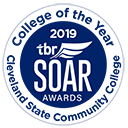Historian
Historians
19-3093.00
Median wages
$46,1700
Research, analyze, record, and interpret the past as recorded in sources, such as government and institutional records, newspapers and other periodicals, photographs, interviews, films, electronic media, and unpublished manuscripts, such as personal diaries and letters.
- Conserve and preserve manuscripts, records, and other artifacts.

- Gather historical data from sources such as archives, court records, diaries, news files, and photographs, as well as collect data sources such as books, pamphlets, and periodicals.

- Conduct historical research as a basis for the identification, conservation, and reconstruction of historic places and materials.

- Research and prepare manuscripts in support of public programming and the development of exhibits at historic sites, museums, libraries, and archives.

- Present historical accounts in terms of individuals or social, ethnic, political, economic, or geographic groupings.

- Organize data, and analyze and interpret its authenticity and relative significance.

- Research the history of a particular country or region, or of a specific time period.

- Conduct historical research, and publish or present findings and theories.

- Recommend actions related to historical art, such as which items to add to a collection or which items to display in an exhibit.

- Determine which topics to research, or pursue research topics specified by clients or employers.

- Speak to various groups, organizations, and clubs to promote the aims and activities of historical societies.

- Advise or consult with individuals and institutions regarding issues such as the historical authenticity of materials or the customs of a specific historical period.

- Prepare publications and exhibits, or review those prepared by others, to ensure their historical accuracy.

- Trace historical development in a particular field, such as social, cultural, political, or diplomatic history.

- Organize information for publication and for other means of dissemination, such as use in CD-ROMs or Internet sites.

- Interview people to gather information about historical events and to record oral histories.

- Collect detailed information on individuals for use in biographies.

- Edit historical society publications.

- Coordinate activities of workers engaged in cataloging and filing materials.

- Translate or request translation of reference materials.

- Teach and conduct research in colleges, universities, museums, and other research agencies and schools.
- Analytical or scientific software — SPSS
 ; Statistical analysis software
; Statistical analysis software
- Data base management system software — Database management systems

- Data base user interface and query software — Gutenberg-e; Reference management software; Structured query language SQL


- Data mining software — Text mining software; TokenX

- Desktop publishing software — Adobe Systems Adobe InDesign
 ; QuarkXPress
; QuarkXPress
- Document management software — Adobe Systems Adobe Acrobat
 ; Web Scrapbook
; Web Scrapbook
- Electronic mail software — Email software

- Enterprise application integration software — Extensible markup language XML


- Graphics or photo imaging software — Adobe Systems Adobe Photoshop


- Information retrieval or search software — Archival databases; ArchiveGrid; Searchable online catalogs; Smithsonian Institution digital archives
- Internet browser software — Page markers; Web browser software

- Map creation software — Digital mapping software; Geographic information system GIS software


- Music or sound editing software — Audio editing software

- Office suite software — Microsoft Office

- Optical character reader OCR or scanning software — Scanning software

- Spreadsheet software — Microsoft Excel


- Web page creation and editing software — Adobe Systems Adobe Dreamweaver


- Word processing software — Corel WordPerfect; Microsoft Word
- Reading Comprehension — Understanding written sentences and paragraphs in work related documents.

- Critical Thinking — Using logic and reasoning to identify the strengths and weaknesses of alternative solutions, conclusions or approaches to problems.

- Active Listening — Giving full attention to what other people are saying, taking time to understand the points being made, asking questions as appropriate, and not interrupting at inappropriate times.

- Writing — Communicating effectively in writing as appropriate for the needs of the audience.

- Speaking — Talking to others to convey information effectively.

- Active Learning — Understanding the implications of new information for both current and future problem-solving and decision-making.

- Social Perceptiveness — Being aware of others' reactions and understanding why they react as they do.

- Instructing — Teaching others how to do something.

- Complex Problem Solving — Identifying complex problems and reviewing related information to develop and evaluate options and implement solutions.

- Judgment and Decision Making — Considering the relative costs and benefits of potential actions to choose the most appropriate one.

- Coordination — Adjusting actions in relation to others' actions.

- Learning Strategies — Selecting and using training/instructional methods and procedures appropriate for the situation when learning or teaching new things.

- Monitoring — Monitoring/Assessing performance of yourself, other individuals, or organizations to make improvements or take corrective action.










